A few technical problems for this new session with, among other things, a Madrasi freeze followed by a Circe rebirth in the form of a new conference identifier and, to top it all off, a microphone failure during the conference.
Nevertheless, an excellent session with some very nice material gleaned during the summer.
Enjoy reading the Master's report
Master's words


In this period of "back to school", let me introduce myself, I who was a teacher (a little) for 40 years (all the same): I was a kind of Martian, stuck between the teachers who don't like him too much because he is not enough (teacher) and... the pupils who like him enough because he is not too much.
"Telling the truth is useful to those who are told about it but disadvantageous to those who tell it, because they make themselves hated" (B. Pascal).
"To be always right is a great wrong" (Montaigne).
"When I will have only a pair of buttocks to think, I will go and sit him at the Academy" (G. Bernanos).
"Chess is not for timid souls. They require a whole man, who does not stop blindly at what has already been established, but who tries individually to probe the depths of the game. [...] Yes, Chess is difficult, requires work, a serious reflection, that only a careful research can satisfy. There is only the ruthless criticism which may lead to the goal. Alas, for many, criticism is seen as an enemy rather than a guide to the truth" (W. Steinitz).
As I have already told you, I am considerably behind in my reading. The reason: the obligation to "earn a living", a misleading formula that forces us for several decades to work in a profession that, even if one shows some skills, is not our main area of excellence. So it takes me a long time to simply... read what's in my library.
The last book I tackled was by Shereshevsky, you know, the author of "Strategy in the Endgame", a book that everyone is forced to admire, I should say adore, but which always seemed to me superficial, certainly interesting, but by no means a masterpiece. Moreover, its title is silly, as strategy is not practised in the endgames (only tactical) but in the previous stage, that of the pre-endgame or transposition to the endgame.
This time he is collaborating with a Leonid Slutsky, whom I have never heard of, on two volumes from 1991 and 1992, also with the silly title "Mastering the Endgame". A bit like writing a book called "You'll all be smart". The first volume is devoted to the so-called "open" (and semi-open: it starts with the most played Sicilian) openings, the second to the so-called "closed" openings.
Of course, the critics (who almost never read the book they are criticizing) have spoken of a super-preparedness of the openings that goes right through to the endgame. So I went into these two books thinking I would spend 2 or 3 hours on them and give them away quickly. Because I never throw away books, I give them away! A "Greek" gift? You be the judge.
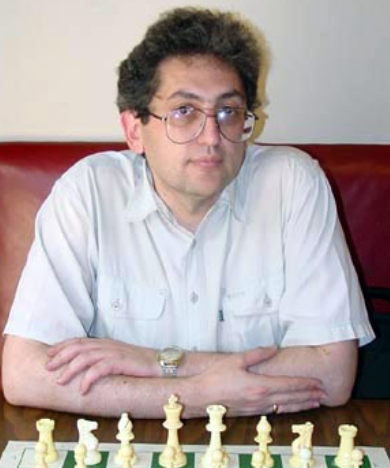 But I found them interesting. Not where it was suggested: they are not a dubious tip to evade the middle game, a magic wand to "master" anything, but only a good choice of classic games going indeed directly from stage 1 to stage 3, with synthesis of the comments published at the time, which makes me win again... a little time, before applying the "modern technique" of analysis! There are many errors in the analyses, although they are quite basic. So an excellent working material where everything remains to be done.
But I found them interesting. Not where it was suggested: they are not a dubious tip to evade the middle game, a magic wand to "master" anything, but only a good choice of classic games going indeed directly from stage 1 to stage 3, with synthesis of the comments published at the time, which makes me win again... a little time, before applying the "modern technique" of analysis! There are many errors in the analyses, although they are quite basic. So an excellent working material where everything remains to be done.
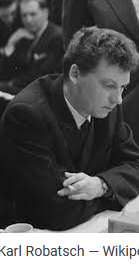
Certainly, the first volume starts very strong: a preface by Yusupov quoting a game with a "theoretical novelty" in the endgame at... 36th move, after which "White won". Unfortunately, I can't demonstrate the win (see Novikov-Tukmakov at 46). Any comments on this (or on anything else) will be welcome.
Another tasty piece is Robatsch-Portisch, where the white game is, according to the authors, a vale of tears. It is true that the technique of the Hungarian super-player was almost exemplary, leading at least to the opponent's foul. The trouble is that White has a draw on the 52nd move, which renders the above beautiful literature null and void. And there are many other gems, which we may see later.
In conclusion, if the title of these two books had been something like: "A collection of commented classical games, in which the middle game has been suppressed", we would have appreciated them, forgiving the lightness of the said comments, sometimes interesting. We would even have complimented them,
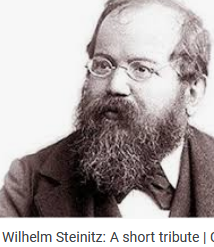
highlighting both a very good choice of games and some very valuable quotes from great players that we didn't know about.
Note an echo in these two endgames, between 46...Kd5!! and 54 Ke4! When you have one less piece, you usually feel compelled to act, to compensate for this inferiority. It is difficult to do nothing, because it supposes that one believes in a natural balance of the position. And then one simply waits, preparing to counter any opposing initiative. This requires a great deal of judgement.
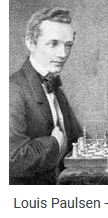
Two exercises for the next session, one much longer than the other.
News: our national hero missed a brilliant win in July against the "world champion" whom he had clearly dominated. Three days later, an echo of which the problemists spend their lives dreaming comes to mind... quite naturally. He himself mentions it ( http://www.mvlchess.com/2018/08/04/un-podium-sur-le-fil/ ) but it has also its place here, high place of artistic Chess!
The theme of the two games of the day is the royal walk. In the first one, the White player is known for this penchant, to the point that a famous problem
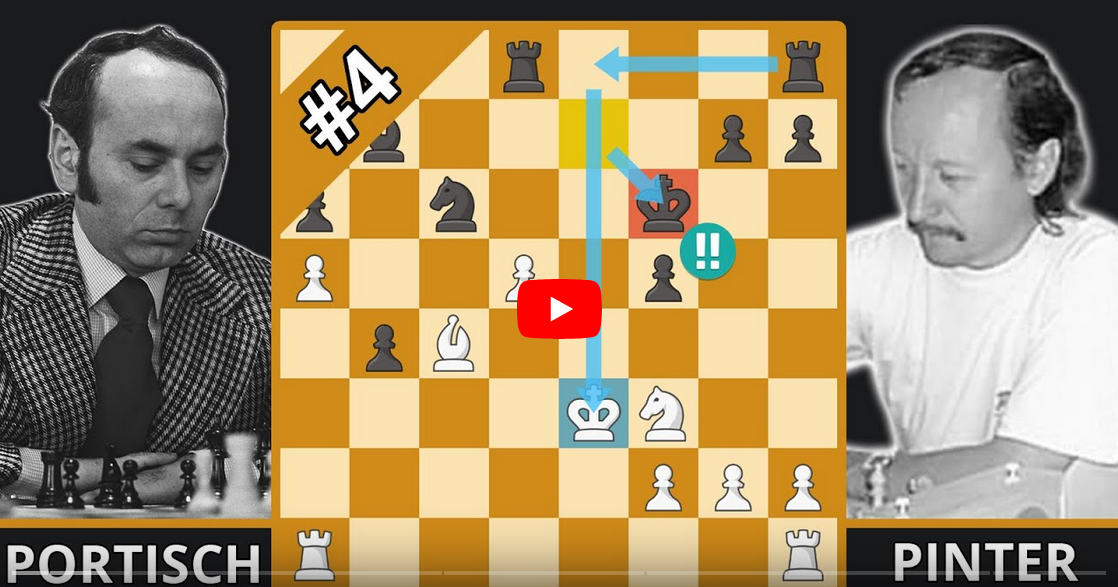
was dedicated to him, his key being 1 Ke2!! A century later, the protagonists are rather known for their calm style. Well, let's see... With problem moves, which is normal when we come back from Ohrid (see "solving competitions").
Training: about ten 2#, the easiest of which seem to me... the last three. Intense Queen activity in the first two 3#, the next one is from Nice, the last one German (a story about changing defenders). In the moremover, we sacrifice for a model mate.
One helpmate 2# where the 5th solution is not of the same family as the 4 others. Another more relaxing one, with Apparent Play (so 1.5# helpmate). A little visit from "Mister Jones" and some Australian tempi. To finish, a Macedonian strategy, then an echo-chameleon in selfmate.
A good treat. See you in a few weeks if Deus vult.
Comments
1 Alain On Wednesday, april 12, 2023